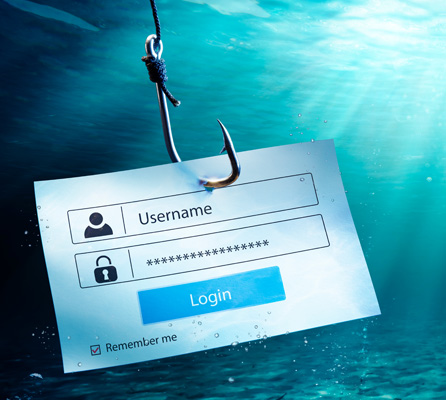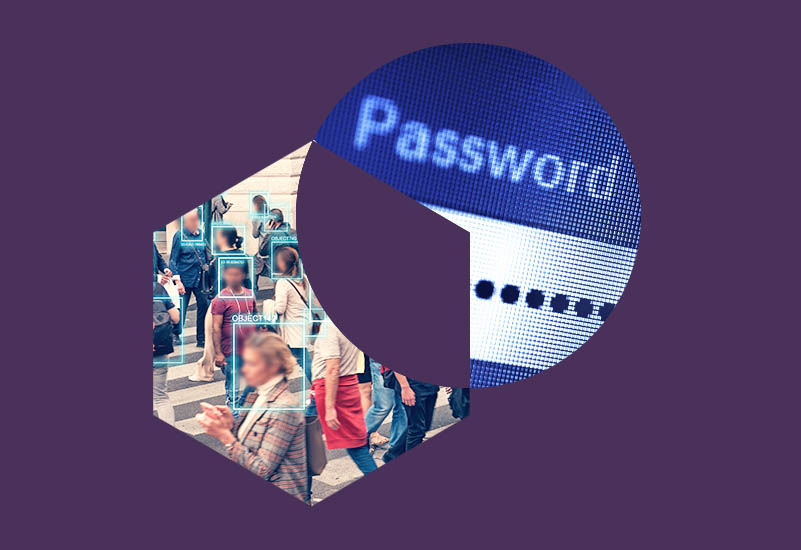Introduction
What do our digital footprints reveal, and who is trying to exploit them?
This course unit, led by Dr Landon Kuester, explores the risks to security in our superconnected, data-driven world and examines what can be done to preserve trust in our digital environment.
The unit is delivered online via Canvas and includes contributions from leading researchers, both from Manchester and external to the University. It is made up of 10 modules, which will be released at intervals.
- This unit has been designed specifically for online learning and offers a unique interactive experience.
- This unit is accessible to undergraduate students from all disciplines.

About
Rapid advances in technology and connectivity have led to new opportunities in every aspect of life.
From manufacturing, finance and retail, to education, media, and politics. Digital technologies and services profoundly influence our lives and improve our world in countless ways.
However, these advances also raise challenges and in this unit, we ask the questions:
- What do our digital footprints reveal, and who is trying to exploit them?
- How do new technologies offer new opportunities for cybercriminals to steal our data, our money, and our identities, lock us out of our homes, poison our water, and switch off our lights?
- How does the use of digital media change the nature of democracy and affect trust in democratic systems and established authorities?
- What technical, behavioural and legal measures are available to prevent harm and maintain trust in digital systems?

Unit details
What should I know about this unit?
Trust and Security in a Digital World: From Fake News to Cybercriminals
Course Unit Code
UCIL20132 (10 credits)
Course Unit Details
This unit has been designed specifically for online learning and offers a unique interactive experience.
- Level 2
- School of Social Sciences (Department of Criminology) and School of Engineering (Department of Computer Science)
This unit aims to address social, psychological, legal and technical aspects of threats to security in digital contexts, and the impact on trust. The unit will enable you to understand the nature of digital harms, from online crimes to the malicious manipulation of information to influence behaviours and attitudes - transcending the digital boundaries to effect physical and psychological attacks. We will explore the different ways in which those harms can be reduced or prevented so that you can make well-informed choices about countering security threats in personal, societal and business contexts.
On successful completion of the unit you will be able to:
- Describe the range and nature of challenges to security and trust in digital contexts, and the personal, societal, economic and political impacts of these challenges
- Understand the ways in which threats and harms can be managed through technical and social means, in the workplace and at home
- Analyse the nature, scope and severity of different threats and harms in digital contexts
- Evaluate the effectiveness of different approaches to mitigation, at individual, organisational and societal level
- Identify the skills and knowledge required by professionals working in the industry
- Take practical steps to identify and counter cyber threats in your personal life and future career
- Prepare well-researched written presentations
- Engage in constructive debate, developing and defending your own arguments while recognising the views of others
All students take eight core modules and two additional optional modules.
Core modules
- Our super-connected world
- Core issues in cyber security
- Financial crime and white collar crime
- Organised crime, cryptomarkets and the Dark Web
- The surveillance society
- 'Fake News': conspiracy theories, misinformation and disinformation in the digital world
- Keeping a digital system safe
- Responding to a security threat
Optional Modules
- Online exploitation and abuse
- CSI Investigating cybercrime
- Digital security and trust in democratic institutions
- Online harassment
- Security for humans
- Protecting data
The unit includes contributions from leading researchers located in Manchester and around the world.
The unit is delivered entirely via Canvas, and everything you need to pass each module is included in the module content. Further study suggestions are included for students who wish to explore the topics in more detail.
As well as module text, there are case studies, interactive exercises, videos, games and other activities to help extend and consolidate your learning.
Unit leaders and teaching assistants are on hand throughout the course to answer any questions you have.
Modules are released at intervals throughout the semester. Core module assessed discussions must be completed weekly, but you can work through the optional modules at your own pace, as long as all optional module assessments are complete by the deadline (usually week 11).
10 Credits
- 6 x Core Module assessed discussions and 2 x Optional Module Assessments (multiple choice tests) (25%)
- 500-word Core Module 08 Case study reflective task (25%)
- 1000-word Written Assessment Task (50%)
Dr Landon Kuester and a variety of experts and contributors from across the University of Manchester and beyond.
UCIL units are designed to be accessible to undergraduate students from all disciplines.
UCIL units are credit-bearing and it is not possible to audit UCIL units or take them for additional/extra credits. You must enrol following the standard procedure for your School when adding units outside of your home School.
If you are not sure if you are able to enrol on UCIL units you should contact your School Undergraduate office. You may wish to contact your programme director if your programme does not currently allow you to take a UCIL unit.
You can also contact the UCIL office if you have any questions.
How to enrol
UCIL units are designed to be accessible to undergraduate students from all disciplines. Depending on your School enrolment can be completed in one of two ways:
Enrolment using the Course Selection System
You may be able to enrol directly onto a UCIL unit using the Course Unit Enrolment System.
Enrolment via your School
If you cannot see the UCIL unit you wish to study or it is blocked out on the Course Unit Enrolment System you may need to request approval to study the unit directly from your School.
Please get in touch with the UCIL team at ucil@manchester.ac.uk if you have any questions.
Student testimonial
Cybersecurity is something that affects us all. In today's digital world, ignorance is not bliss. Anyone, who uses the internet should develop an awareness of potential harms and methods to protect ourselves. This UCIL unit does just that in a well-structured, easily digestible and engaging manner.
Chu Poh
Business amd Economics student


